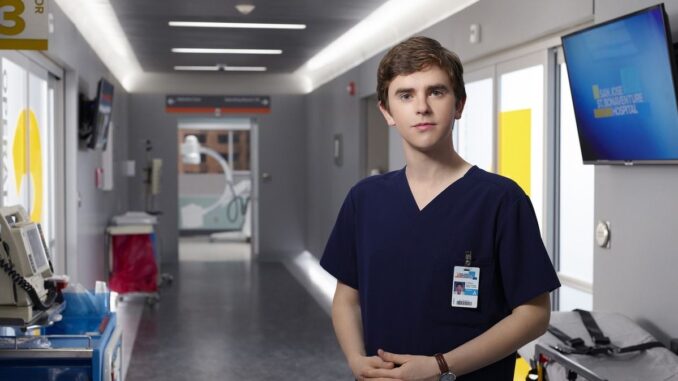
In a world that often praises loud voices, fast wit, and effortless charm, Dr. Shaun Murphy stands quietly—and unapologetically—apart. He doesn’t speak like others. He doesn’t make eye contact easily. He doesn’t always know the “right” thing to say. But somehow, across operating rooms, hospital corridors, and television screens worldwide, he teaches us more about compassion than anyone else ever could.
At first glance, Shaun doesn’t fit the mold of a television hero, much less a surgical prodigy. He’s a young man with autism and savant syndrome, trying to navigate the rigid world of medicine—a world built on teamwork, hierarchy, and emotional intuition. These are all things Shaun struggles with deeply. Yet he doesn’t back down. He shows up. Day after day. With unwavering courage and a mind that sees what others miss.
But The Good Doctor isn’t just about a brilliant young man who saves lives through medical genius. It’s about something even more extraordinary: how someone who feels like an outsider can end up being the moral center of everything.
Shaun doesn’t always know how to comfort a grieving parent or how to phrase a truth gently. But he always tells the truth. He doesn’t manipulate emotions—he respects them. And though he may struggle with social cues, he’s acutely aware of people’s pain. Not through performance, but through presence. Through his desire to help, to fix, to heal—not for praise, but because it’s the right thing to do.
And that is his superpower.
The world of The Good Doctor—like our own—isn’t always kind to difference. Shaun faces skepticism, dismissal, and sometimes cruelty. Patients refuse his care. Colleagues doubt his abilities. He’s constantly asked to prove he belongs in spaces others take for granted. But what makes him remarkable is not just that he proves it—it’s how he proves it.

With honesty. With integrity. With heart.
He doesn’t pretend to be someone he’s not. He doesn’t mask his awkwardness or hide his discomfort. And in doing so, he gives the people around him permission to do the same. As his coworkers learn to trust him, they begin to trust themselves more. As they see him fight for his patients, they remember why they chose medicine in the first place. Shaun’s courage becomes contagious.
What’s more—he teaches viewers to see beyond the surface. To recognize that compassion doesn’t always wear a warm smile or come with perfect words. Sometimes, it comes in quiet determination. In standing up for a patient no one else believes in. In saying “I don’t know,” and then working relentlessly until you do.
Week after week, Shaun reminds us that being different is not a flaw. It’s not something to be corrected or hidden away. It’s a kind of strength the world desperately needs more of. And The Good Doctor dares to say so—out loud, with every emotionally layered episode.
Yes, there are surgeries. Yes, there are hospital politics and high-stakes drama. But the heart of the show—the reason audiences stay—is Shaun.
He is an unlikely hero for uncertain times.
A beacon for anyone who’s ever felt left out, misunderstood, or underestimated.
A reminder that kindness isn’t always loud, but it is always powerful.
In a world that rushes past difference, The Good Doctor slows us down. It asks us to feel again. To listen more closely. To lead with empathy. And it does so through a young man who doesn’t follow the rules—but changes lives precisely because of it.
